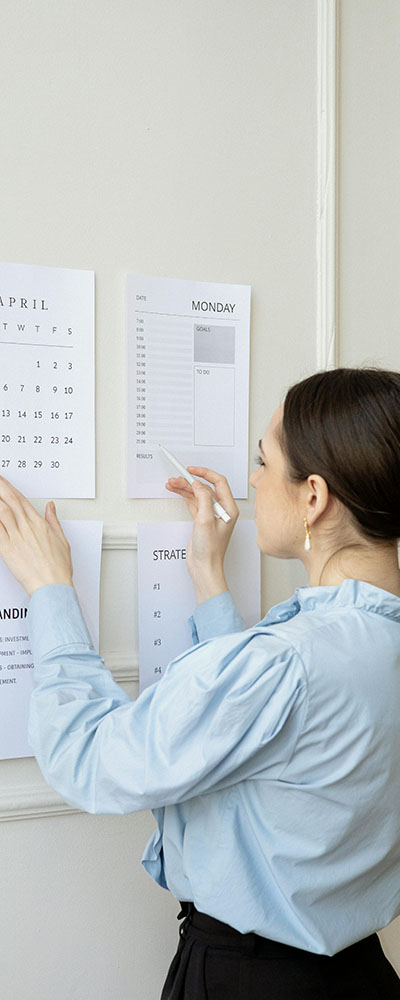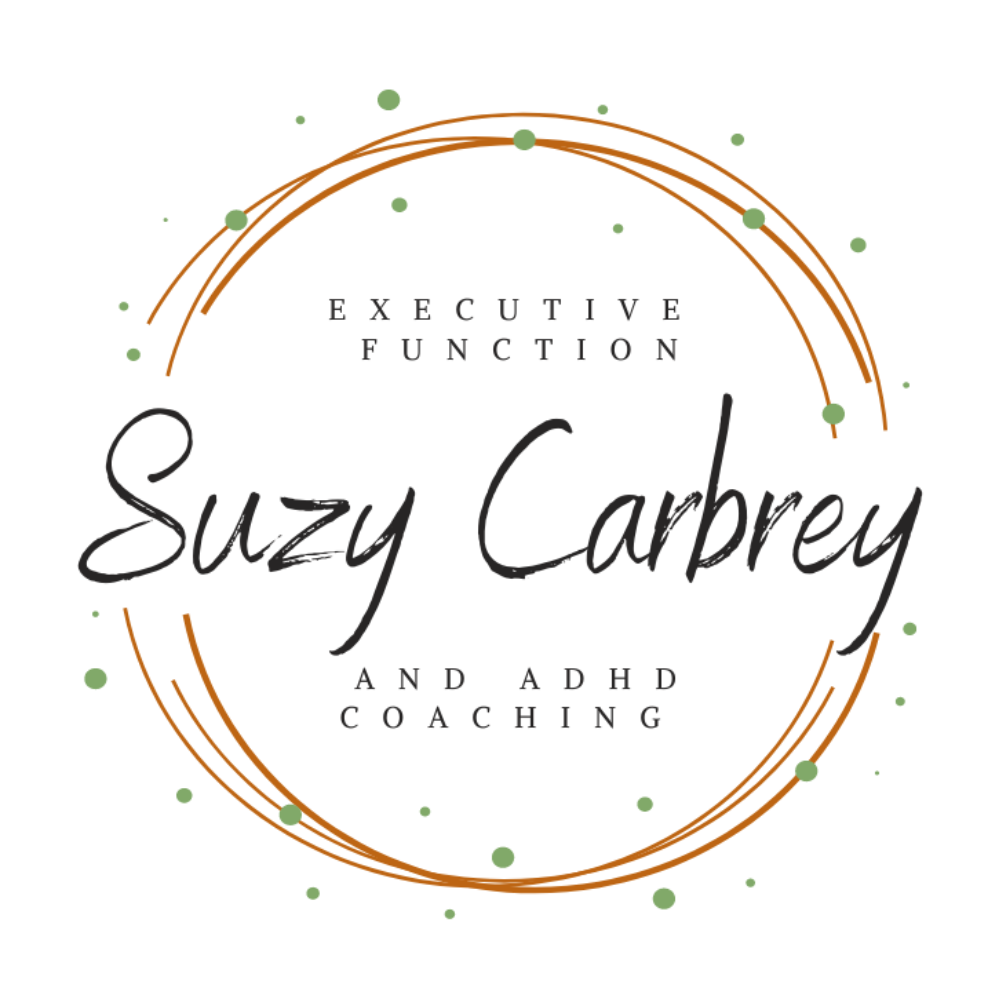Maintaining focus is a well-known struggle for many individuals, especially those with ADHD or executive functioning challenges. Whether you’re a parent juggling family responsibilities or a professional managing complex work tasks, staying on track with your goals can feel overwhelming. However, understanding the factors that influence our ability to focus—interest, challenge, novelty, and urgency—can help you develop strategies to boost your focus, initiate tasks more effectively, and persist until tasks are completed. In this post, we’ll explore how these four factors interact to improve your ability to stay focused, get started on tasks, and complete them.
Interest: Sparking Engagement to Overcome Procrastination
Interest is a crucial factor when it comes to focus. We are naturally more inclined to focus on tasks that spark our curiosity or align with our personal goals. Tasks that feel engaging or meaningful tend to draw our attention and increase our motivation to get started and keep going. When we lack interest, it’s easy to procrastinate, avoid the task, or simply get distracted.
For parents and professionals with ADHD, tasks that align with your passions or long-term goals are more likely to draw you in. It’s important to tap into what excites you because when interest is high, task initiation becomes much easier. Likewise, staying focused on a task you enjoy can help you power through to completion.
Actionable Strategies for Parents and Professionals:
- Connect Tasks to What Matters: Reflect on your interests and values. Even if a task itself feels tedious, you can find ways to connect it to your larger goals. For instance, if a parent is working on meal planning and struggles with the repetitive nature of the task, they could tie it to long-term family health goals or try new recipes to make the process more exciting.
- Make Tasks More Interesting: If a task feels boring, consider how you might make it more engaging. Add variety, try a different approach, or incorporate an element of fun, like listening to your favorite music while working on a report or involving your children in a household project to make it a family activity.

By focusing on what interests you, task initiation becomes smoother, and goal-directed persistence is supported, as you are motivated by a deeper connection to the task at hand.
Challenge: Finding the Sweet Spot for Focus and Task Completion
Challenge plays a significant role in maintaining focus. When a task is too easy, it often fails to engage us, and we may lose interest and switch to something else. Conversely, tasks that are too difficult can lead to frustration, anxiety, and avoidance, which makes it harder to even begin, let alone complete the task.
For parents and professionals with ADHD, the ideal focus-enhancing task lies in the “sweet spot”—a balance between difficulty and ability. When a task challenges you without overwhelming you, your focus sharpens, and your motivation to work through the task increases.

Actionable Strategies for Parents and Professionals:
- Break Down Complex Tasks: If a task feels too challenging, break it into smaller, more manageable parts. By doing so, you can reduce feelings of overwhelm and build confidence as you complete each step. For instance, if you’re writing a report, tackle one section at a time rather than trying to complete it all at once.
- Set Stretch Goals: Push yourself to tackle slightly more challenging goals to stimulate your brain without going overboard. Stretch goals create the right amount of challenge to keep you engaged. For example, if you’re a professional working on a presentation, aim to add one unique feature or approach that goes slightly beyond your usual comfort zone.
Introducing a manageable level of challenge makes it easier to initiate tasks and enhances task persistence because it encourages you to engage fully with the task and push through any difficulties. By meeting the challenge head-on, you’ll feel a greater sense of accomplishment when you complete the task.
Novelty: Keeping Focus Fresh Through New Experiences
Novelty plays a fascinating role in our ability to focus. Our brains are wired to respond to new or unexpected stimuli, which is why novelty can heighten focus and motivation. However, for individuals with ADHD, novelty can be a double-edged sword. On the one hand, new tasks or environments can boost engagement and focus. On the other, the pursuit of novelty can also lead to distractions or task-switching if we’re constantly looking for something more exciting.
For parents and professionals, novelty can be used strategically to refresh focus when tasks feel stale or repetitive. Changing things up can reignite your interest and help you regain focus.
Actionable Strategies for Parents and Professionals:
- Introduce Small Changes: If you feel yourself drifting away from a task, try switching things up. Move to a different environment, change the time of day when you work on a task, or try a new method to approach it. For example, if you’re organizing a family schedule, try a new app or use a physical planner instead of a digital one to engage your brain in a new way.
- Vary Your Routine: Mix up your daily tasks to prevent monotony. If you’ve been working on a long project, switch between different kinds of tasks to keep things interesting. Alternating between creative tasks and administrative ones can prevent burnout and boost focus.
Incorporating novelty into your tasks can help you overcome mental fatigue, making it easier to initiate and persist with tasks. It introduces an element of excitement that keeps your brain engaged, boosting both focus and productivity.
Urgency: Harnessing Time Pressure to Drive Focus
Urgency is one of the most well-known motivators of focus. When deadlines loom or there is a sense of time pressure, the brain activates its fight-or-flight response, which can sharpen focus and increase productivity. However, urgency can be a double-edged sword. Too much pressure can lead to stress, anxiety, and poor decision-making, which may negatively impact both task initiation and completion.
For individuals with ADHD, it’s crucial to find a balance. The right amount of urgency can help you initiate tasks and push through to completion, but too much urgency can leave you feeling overwhelmed and unable to focus effectively.

Actionable Strategies for Parents and Professionals:
- Set Realistic Deadlines: Create a sense of urgency by breaking large projects into smaller tasks and assigning deadlines to each one. By doing so, you can avoid the feeling of being overwhelmed by a large goal. For instance, instead of focusing on “cleaning the house,” break it down into smaller tasks like “vacuuming the living room by 11 AM” or “folding laundry after lunch.”
- Use External Accountability: Having someone check in on your progress can increase the urgency to stay on track. This could be a colleague, a coach, or even a friend or family member. Knowing someone else is counting on you helps maintain focus and motivation.
- Use Time Blocks and Timers: Set a timer for 25 minutes of focused work, followed by a 5-minute break. This method—often referred to as the Pomodoro Technique—creates a sense of urgency while preventing burnout. Knowing that you have limited time helps maintain focus, while the short breaks keep your brain fresh and ready to dive back in.
Urgency can push you to take action and maintain momentum, especially when paired with the other three factors (interest, challenge, and novelty). Setting manageable timeframes and creating small deadlines fosters a productive sense of urgency without the stress of looming, overwhelming goals.
Using Focus Factors to Improve Task Initiation and Persistence
By understanding how interest, challenge, novelty, and urgency influence our ability to focus, task initiation and completion become more manageable. These four factors can help you tap into your brain’s natural tendencies and work with them rather than against them. Here’s a quick recap on how to use these factors:

- Interest: Make tasks engaging by connecting them to your personal goals and passions.
- Challenge: Find the sweet spot between too easy and too hard to maintain focus and boost task persistence.
- Novelty: Use new methods or environments to refresh your focus and keep mental fatigue at bay.
- Urgency: Create deadlines and accountability systems that motivate you to get started and complete tasks.
Incorporating these strategies into your daily routine can help you overcome procrastination, initiate tasks with ease, and persist through to completion. By adjusting your approach to tasks based on these factors, you can work with your brain’s natural rhythms, turning focus into a skill that serves your needs, whether you’re a parent, a professional, or both.
Final Thoughts
Maintaining focus and successfully completing tasks is a challenge many face, particularly those with ADHD or executive functioning difficulties. By recognizing the key factors that influence focus—interest, challenge, novelty, and urgency—you can develop strategies to make your work more manageable and enjoyable. Whether you’re a parent balancing family life or a professional managing a busy workload, aligning tasks with your interests, finding the right level of challenge, incorporating novelty, and using urgency strategically can make all the difference in boosting your productivity. By implementing these tailored strategies, you can better harness your natural tendencies, reduce procrastination, and stay on track, ultimately enhancing your ability to get things done with more ease and less overwhelm.
Learn more with Online Coaching for Executive Functioning / ADHD
Ready to gain control and enhance your executive functioning? As an experienced and compassionate coach, I specialize in providing support for executive functioning and ADHD. To embark on your journey, please reach out to me at 708-264-2899 or email hello@suzycarbrey.com to schedule a FREE 20-minute discovery call consultation.
With a background as a speech-language pathologist, I have a strong foundation in executive functioning coaching. My graduate degree program in SLP placed a significant emphasis on cognition, including executive functions, and I have years of experience in medical rehabilitation, providing cognitive-communication therapy. Additionally, I have completed an ADHD Services Provider certification program, I am Solutions-Focused Brief Therapy Diamond Level 1 certified and I am trained in the Seeing My Time® executive functioning curriculum.
Experience the convenience and effectiveness of online coaching, backed by studies that demonstrate equal results to in-person services. Parents, professionals, and emerging adults love the convenience and privacy of receiving coaching from their own homes.
Whether you reside in Chicago, Milwaukee, Indianapolis, Kansas City, or anywhere else around the globe, I am here to assist you. Schedule your discovery call consultation today, and I eagerly anticipate the opportunity to work with you!
Please note that although I am a certified speech-language pathologist, all services Suzy Carbrey LLC provides are strictly coaching and do not involve clinical evaluation or treatment services. If you require a formal speech therapy evaluation and treatment, please inform me, and I can provide appropriate recommendations.

